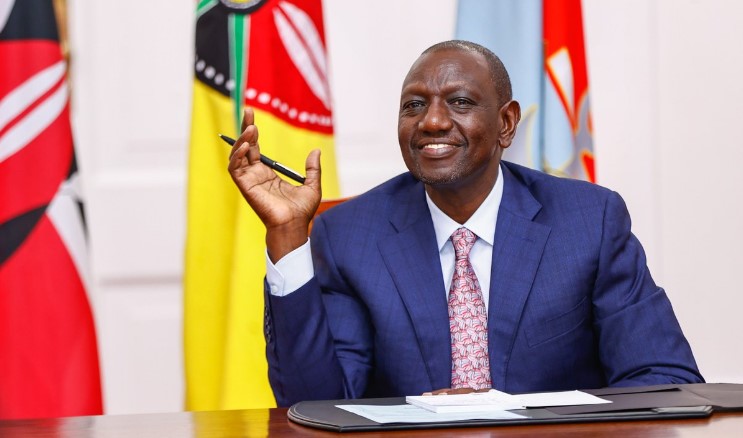All public servants to get salary increase, set to be backdated to July

Government increases salaries of public servants by between 7 per cent to 10 percent, set to be adjusted as from July 1
Government increases salaries of public servants by between 7 per cent to 10 percent, set to be adjusted as from July 1.
Public servants will receive a salary increase of between 7 per cent to 10 per cent, with the adjustments retroactively applied from July 1.
The salary increments were announced by Lyn Mengich, the Salaries, and Remuneration Commission (SRC) chairperson, today, Wednesday, August 9.
Mengich claims that the Ksh21.7 billion budget for civil servants for the fiscal year 2023–2024 was allocated by the National Treasury in accordance with the constitutional principles of affordability and fiscal sustainability.
Teachers, physicians, nurses, police officers, members of the military, and officers who report to the Executive are among the government servants who will receive raises.
The Executive will receive an allotment of Ksh126 million, or 0.6% of the overall amount for the increments, which will be determined depending on the job level and sectors.
Ksh78 million, or 0.4% of the overall budget, will be given to state officers in the Parliament. Their judicial counterparts will receive Ksh305 million, or 1.4 percent.
County state officers, on the other hand, will receive Ksh408 million (1.9%) of the total.
The public service received Ksh1.8 billion (8.5%), and teachers received Ksh9.5 billion (44.2%).
The Chair noted that Ksh4.5 billion (20.9%) went to uniformed and disciplined forces, while Ksh4 billion (18.8%) went to county administrations.
SRC revealed that other public officers were allocated Ksh745 million, accounting for 3.4 per cent of the total budget.
The wage bill is projected to rise from Ksh987 billion to around Ksh1 trillion, with the number of employees increasing to around 968 million.
She defended the rise stating that the government will continue to hire civil servants in key sectors of health, education, teaching and security.
Ruto approves National Oil takeover by a private investor
Ruto condemned after signing Immunity Act against ICC
Mt Kenya leaders in a joint statement chide Ruto over his ‘publicity stunt’ development tour
Ruto moves to clamp down on ‘Brookside’ powder milk from Uganda with new directive
“But we are yet to achieve the desired ratios for teachers to students, healthcare and security to population ratios. Those are the areas we will continue to recruit. However, we must watch the wage bill ratio to revenue and GDP,” Mengich explained.
While enacting the increments, SRC also assessed the wage bill to Gross Domestic Product ratio and wage bill to revenue ratio.
GDP is the monetary measure of the market value of a country’s final goods and services produced in a specific period. Kenya’s GDP currently stands at Ksh15 trillion.
In terms of ratio to GDP, SRC uses an average for developing countries which should stand at 7.5%. Kenya, she stated, is currently at 7.4% and is expected to hit 7.19% this year.
“We are on target in comparison to developing countries,” Mengich stated.
In terms of wage bill to revenue, Mengich stated that the Public Finance Management Act 2012 stipulates that 35% of revenue should be spent on the wage bill.
“In terms of wage bill to revenue, we are currently at 47.06% in 2022 and projected to hit 40.5% in 2023. This shows that we are moving towards the 35% target.
Also read,
World Bank suspends financing to Uganda over anti-LGBTQ law
Safaricom board director Michael Joseph resigns
Kenyans feel the pinch as banks hike the exchange rate to KSh 150 Per US Dollar
Raila hits out at Koome over dead bodies claim “which world do you live in?”
PCEA Thogot home care denies claims of mistreating elderly after BBC expose
Follow us




